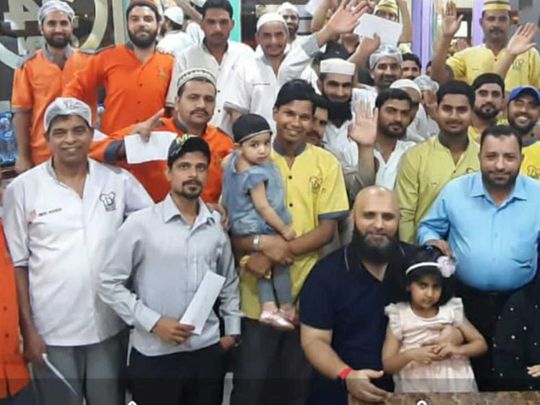Dubai: The COVID-19 pandemic was an eye-opener for all, teaching us lessons that will remain with us always. For some, the gains far outweighed the losses as they chose not to agonise over the past but to share what they had with others.
We spoke to a few UAE residents who were able to find purpose and gain from the pandemic. While one cooked food for the needy, another bonded closer to the family, while yet another helped the community.
Here’s what they said.
Pakistani expatriate Basid Siddique, owner of the Mumtaz Darbar restaurant in Muhaisnah
Basid Siddique was making sales worth Dh8,000 a day at the restaurant serving authentic Pakistani, Indian and Chinese food. Then the pandemic struck and Siddique’s sales plummeted. “My loss is unimaginable,” he said. “Suddenly, I was sitting on a pile of raw material like rice, pulses, lentils, but there was no purpose to cook as there were no customers coming to eat. A thought struck me then to feed the needy — those affected by the pandemic and could not even afford a meal a day.”
Siddique and his friends drew up a “Google form” and posted it on social media, asking people to register if they were in need of free meals. And that was it. Before he knew it, there were scores responding and Siddique was busy with a cause in hand.
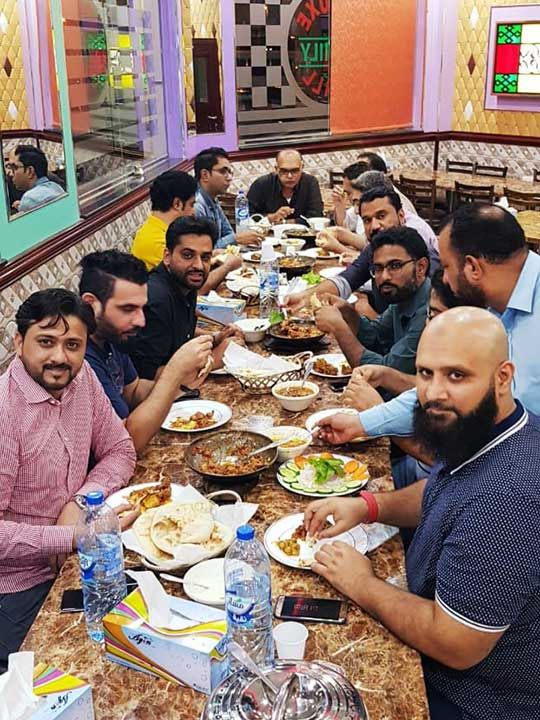
Image Credit: Supplied
“We started scanning the forms and doing research on a case-to-case basis. At first, we started with 50 meal packets a day. Soon word spread and when movement restrictions were at a peak, we were distributing 400 packets to singles and families in need of food.”
The gain
“The love and smiles on the faces of people who received the food packets from us was unbelievable,” said Siddique. “I set up volunteers across Ajman and Dubai as those were the places where most of our demand was centred. Siddique said the whole experience made him grateful to life. “It is easy to moan over your own losses, but when you see others suffering, you realise how much more comfortable you are. For that, I am grateful even today.”
He said the sheer emotions, blessings and love from the people to whom he distributed the food packets kept him going. “My company was struggling, rents were unpaid, there was no reduction in rent for staff accommodation. But my friends and I pulled together and kept on going with our food distribution drive.”
Siddique recalled how he had missed dropping a food parcel one day at a particular location. “The man called me at night and asked me why I did not get him food. He said he slept every night only after eating my meal. It was 11pm. Even then, I drove to his house and dropped a food packet. Another Filipino family did not answer my call when I wanted to confirm deliver of food. The lady called me the next day saying they were scouting for a new place and had found one. So she called to inform me about the new location for the drop-off. Such stories made me cry and feel grateful for all that we have in life.”
Siddique’s business is still struggling, but he says his quest for peace and love will continue.
British expat, Catherine McEvoy, 37, general manager of Easytruck Removals and Storage
The biggest loss Catherine McEvoy faced during the pandemic was her close friends leaving the UAE. “Having lived in the UAE for eight years I have been lucky enough to have formed some close friendships. Unfortunately, a number of my friends have left the UAE. Luckily, the majority of those who left had decided to leave on their own and not forced by job losses. My friends who left the UAE wanted to be back in their home country. I think this year has really made people evaluate what is important to them in terms of living close to their families (particularly with ageing parents) vis a vis highly-paid jobs. I have never been someone with a big network of friends — just a few very close ones. Therefore, having some of them leave has been incredibly hard emotionally, even though I know we will see them again. It’s indeed lonely without your close friends.”
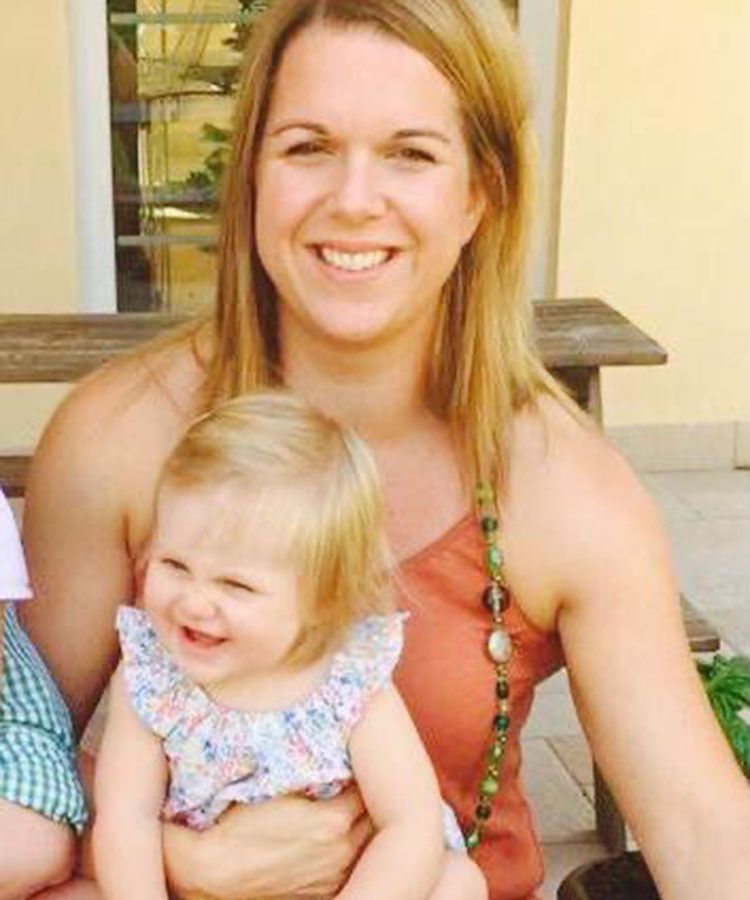
Image Credit: Supplied
The gain
“The lockdown forced my husband and me to change the way we worked. Like so many other people, we had to navigate full-time work and virtual school. Even though this was challenging it made us change the way we spent our time. I have learned to have ‘work time’ and ‘family time’, rather than the two constantly overlapping. We were also forced to slow the pace of our lives down, which has benefited us all. We eat together as a family much more, we play games and think up specific activities to keep the children busy and keep them off electronic devices. This is something that we have continued even though life has somewhat normalised now.”
Maggie Jackson, 43, expatriate from New Zealand
“The biggest loss and what has been hardest for me personally during the pandemic has been the separation from my family with no hope of seeing them anytime soon. The situation makes it impossible for us to travel to New Zealand or for them to travel to UAE. I’m acutely aware of that distance between us after being separated for two-and-a-half years. There is also the worry for our ageing family members. I have many friends who have lost their loved ones during these difficult times and have not been able to have any sense of closure. For them, I feel incredibly sad. I’m sure many will also talk of loss of income and I admit that surviving on half salaries has certainly been challenging. Yet, I also consider our family to be very lucky to have what we have.”
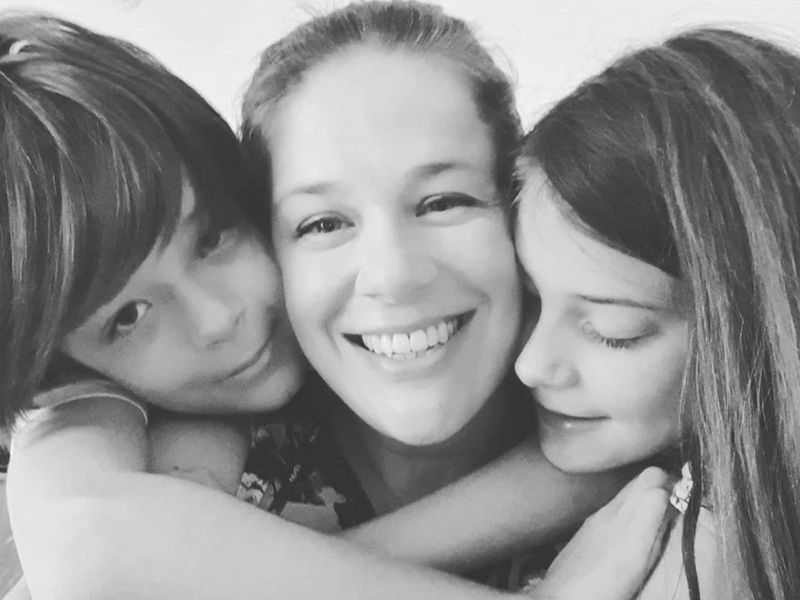
Image Credit: Supplied
The gain
“We have realised that we have enough. In fact, we have much more than so many others. We have gained an appreciation for our family and relationships. I feel that what is truly important is that these challenging times have also been very beneficial to us as a family. We spent time together as a family — something that would have been unimaginable earlier, except during the summer break. That way, we are closer now than ever before. For that I’m thankful.”
Abdul Razzak Ujire, 40, from Karnataka, India
Abdul Razzak Ujire says he has lost sleep during the past few months. “This is because I have got busier than ever before,” he told Gulf News. Since March, when the UAE commenced its national sterilisation drive, he has been busy. “While people were confined to their homes, I was thinking about ways to reach out to the community in whatever way I could. I realised that many people were stuck here and were helpless, and I decided to help them in any way I could. At first, I started reaching out to the bachelors to try and help them.”
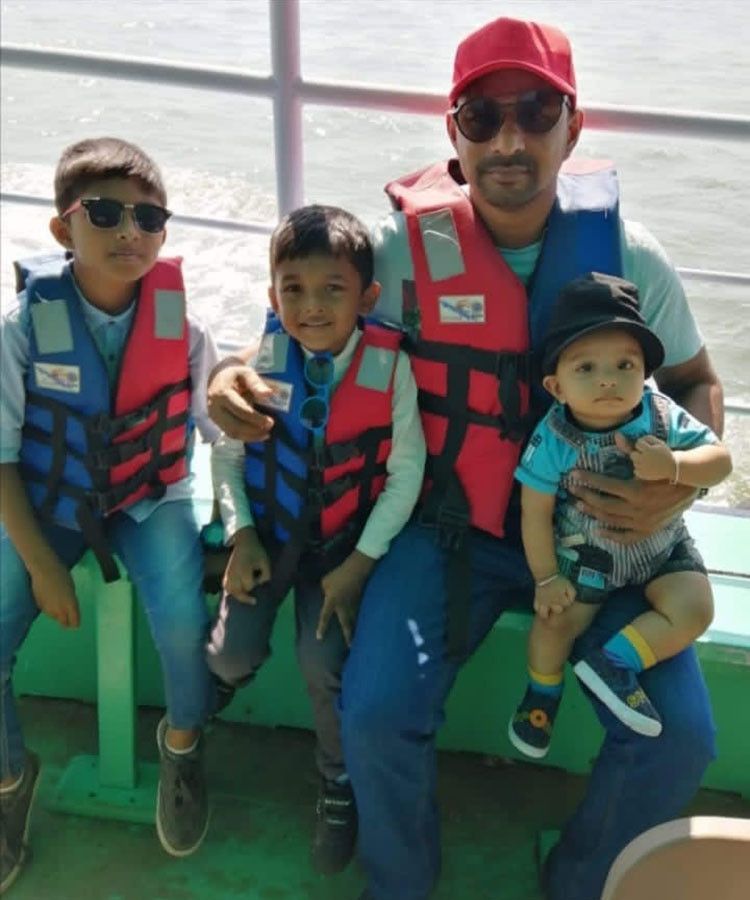
Image Credit: Supplied
Ujire gathered his friends and together they reached out to people, helping them with food and ration, accommodation and assistance with repatriation.
The gain
“Most people did not have a clue on how to proceed with formalities pertaining to repatriation. I would guide them through the procedures. At one point, I was receiving about 100 calls a day. I managed to arrange flights for more than 200 people and free tickets for more than 10-15 people who could not afford these. One bachelor who had come to Dubai for his visa cancellation got stuck here during the lockdown. The person was highly diabetic with multiple health issues. During that time there were no direct flights to Mangalore. So we got him on a flight to Calicut and from there he was transported to Mangalore in an ambulance. He is undergoing treatment back home in India currently and he is recovering well. When his family called to thank us, it was the greatest gift of my life. I couldn’t help being emotional.”
Psychiatrists give advise on how to cope
Dr Laila Mohamadien, Specialist Psychiatrist, Medcare Hospital, Sharjah
“People are now more accepting of the COVID-19 virus situation. Whether it is working from home, studying from home they are adapting to a new life now. My advise to all UAE residents would be to start thinking different. It is a new world we live in now.” She advised residents to think intellectually instead of being emotional about it. “The pandemic is like any other stress in life that starts big then will decrease eventually.
She said: “Life is a mix of struggles and happy moments, face the struggles by accepting them, and be patient, if you can change them, go ahead, but if not give yourself time with a plan. Nothing stays forever, neither good nor bad, the good gives happiness while the bad gives resilience and experience.”
Dr Arun Kumar K , Specialist Psychiatrist with Aster Clinic, Bur Dubai & Aster Hospital, Qusais
“Those who knew to swim managed to escape the worst of the pandemic. But some wallowed in misery. The adverse mental health effects of disasters like this impacts people more than just the physical health impact. Feeling anxious to a new threat is a normal response. But depending on a person’s nature (his genetics, his personality) and his nurture (his upbringing and social environment), the way he copes with the stress varies. A healthy coping strategy makes him in control over his stress.”
The lesson the entire pandemic has taught us is that we should take care of our mental health too. We should be well aware of our own strengths and weaknesses, and should be able to identify when we are under stress and what the stress is. The first step is acknowledging rather than being in denial. Being under stress is not a sign of weakness.”
He advised UAE residents to have a healthy lifestyle and stick to regular routines- including regular food, adequate sleep, regular sleep-wake cycle, physical exercise and a balanced screen time. “We should be more mindful and should learn some relaxation exercises which we are comfortable with. These, along with healthy coping strategies, can ensure that stress doesn’t overpower us.”
He said if this does not work, open up to a friend or a family member who will lend a listening ear.


